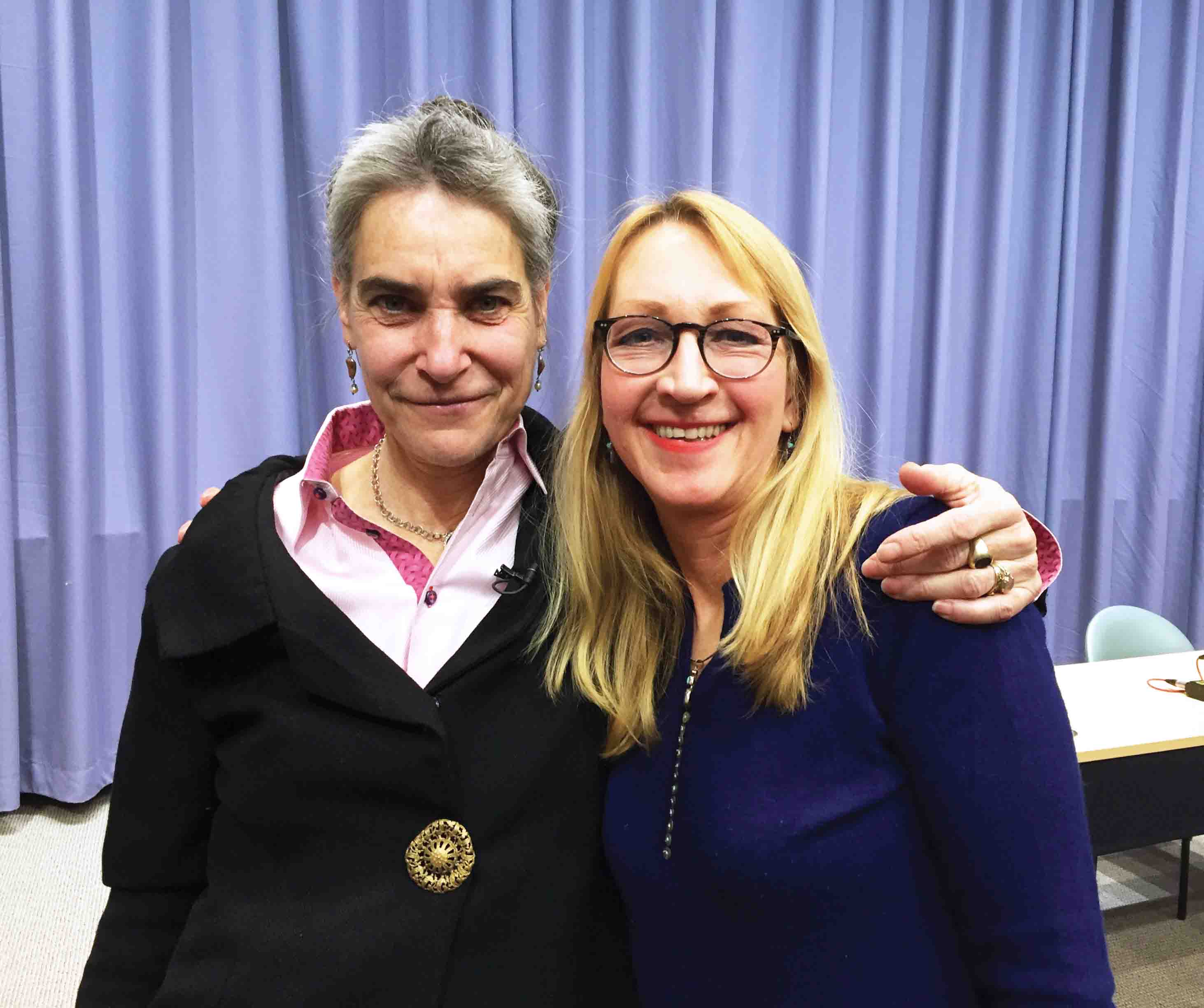
Marilyn Wilkes
Sarah Chayes has spent her career examining how corruption can lead to terrorism, revolutions, environmental degradation and more.
A senior fellow in the Democracy and Rule of Law program of the Carnegie Endowment for International Peace and the author of a recently published book entitled “Thieves of State: Why Corruption Threatens Global Security,” Chayes delivered the annual Coca-Cola World Fund Lecture in Luce Hall Tuesday afternoon. In the lecture, she discussed her personal experiences researching and seeing corruption first-hand, arguing that it is incredibly dangerous because exposure to corruption can push people toward joining terrorist organizations and partaking in other activities that negatively affect society. The Coca-Cola World Fund Lecture is sponsored by Yale’s MacMillan Center for International and Area Studies.
“Corruption pushes people to extremes,” Chayes said, explaining that phenomena like extreme voting patterns often result at least in part from corruption. “I think networks [of] corruption [are] the biggest threat to government for the public interest.”
Chayes’ work examines networks of corruption and how they are created via vertical and horizontal integration. In vertical integration, people send money to others in higher positions in society and, in return, receive protection. Horizontal integration is the web of public and private sector institutions that can work together toward nefarious ends. The combination of vertical and horizontal integration creates networks of corruption, she explained.
According to Chayes, the largest reason governments topple is the public’s response to corruption. Over her career, she has discovered that it is easy for the public to see the head of state as the source of corruption in a society. But, in reality, corruption is not isolated to a leader. More often than not, she explained, broader networks of corruption are to blame, and such networks “are really resilient.”
Chayes noted that she is not the first person to view extremism as a response to corruption. In her speech, she explained that in his “Second Treatise of Government,” John Locke wrote that when governments do not protect the innocent and prevent corruption “war is made upon the sufferers. And they — having nowhere on earth to appeal to for justice — are left to the only remedy in such cases, an appeal to heaven.”
“He basically predicts violent, religious insurgency as a reaction to systemic corruption,” she said.
In her book, she mentions that Osama bin Laden said something very similar, “almost word-for-word.”
When asked about how to fix the American electoral system, Chayes said that money needs to be taken out of elections. She advocated for spending caps, which are more common in Europe.
“The idea that money is speech is absolutely preposterous,” she said.
Ian Shapiro, professor of political science and director of the MacMillan Center, called Chayes “one of the best-informed analysts of U.S. policy in Africa, the Middle East and Afghanistan.”
Professor of Political Science Frances Rosenbluth, who introduced Chayes at the Tuesday event, also praised Chayes for her book’s “powerful” and “simple” argument — “that corruption breeds extremism.”
Coca-Cola World Fund at Yale was established in 1992.
Skakel McCooey | skakel.mccooey@yale.edu







